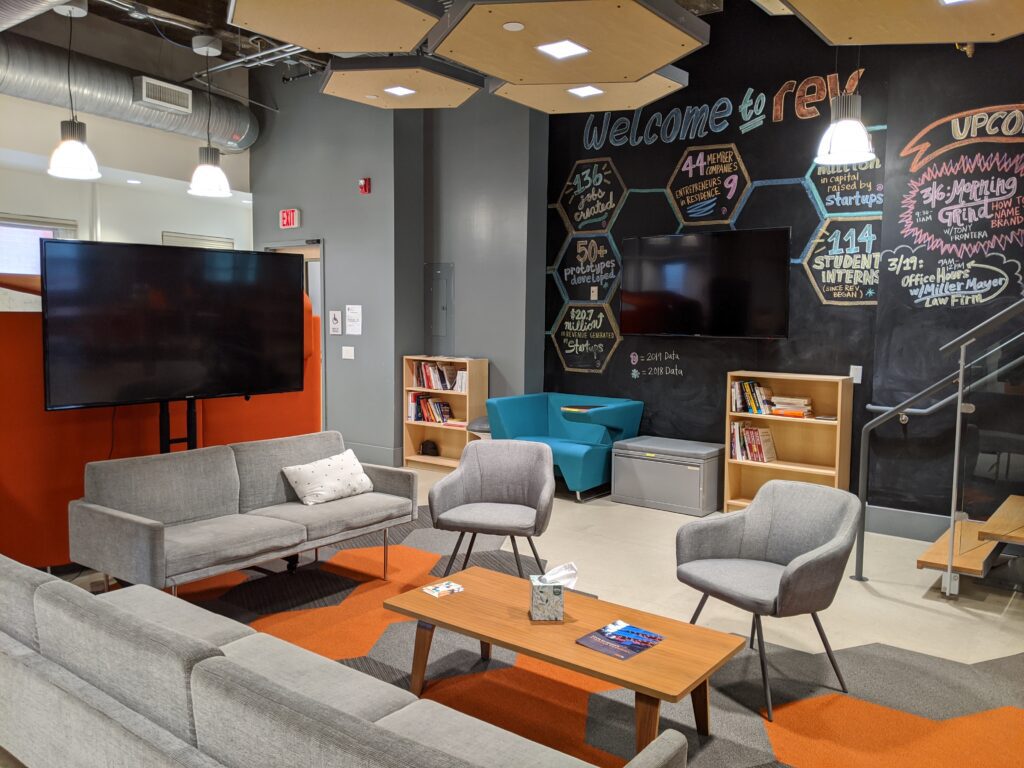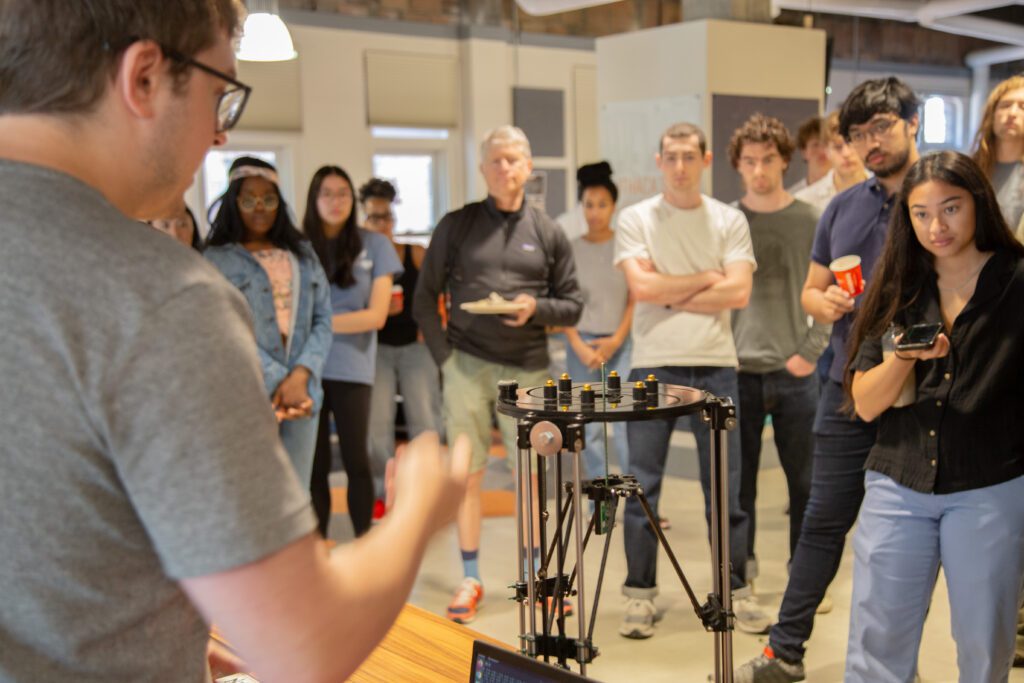In response to the 2014 opening of Rev: Ithaca Startup Works, CNN Business ran the headline: “Can this Small Town Compete with Silicon Valley?” While Ithaca has made headlines for its oversized number of startups per capita and having the highest R&D expenditures in New York state, 10 years later, it’s clear Rev: Ithaca Startup Works is not interested in competing with Silicon Valley, but in imagining an entrepreneurial ecosystem entirely its own. Over the past 10 years, Rev’s member startups have created over 1,000 jobs and generated over 100 million dollars in revenue.
Rev: Ithaca Startup Works is a business incubator located in downtown Ithaca, New York. Rev’s core mission is to help startups launch, scale, and succeed through dedicated workspace, personalized 1:1 mentorship, and entrepreneurial education offerings.
“We’re a teach-to-fish organization; we’re not a fish-for-you organization,” says Rev Director Ken Rother. “We’re here to help people develop the skills they need to be successful entrepreneurs.”
When you walk into Rev, you’ll immediately notice the multicolored chalkboard wall highlighting the successes of its over 35 current member companies, 25 entrepreneurs in residence, and upcoming events that draw over 1,000 attendees each year. You’ll be intrigued by the entrepreneurs soldering, 3D printing, and coding in the incubator’s state-of-the-art prototyping facility, and wonder at the bright, techy-but-comfortable workspace.
“Rev is more than just a house for entrepreneurship,” says Rother. “The members, mentors, and program participants make it a home.”

When former Cornell University President David Skorton established the incubator in collaboration with Ithaca College and Tompkins Cortland Community College, it was Cornell’s only off-campus, community-focused incubator and had just 6 member companies.
Over the years, Rev has grown its support for faculty, students, and community members through generous support from New York State and Empire State Development, the Economic Development Administration, and the Small Business Administration. Rev is managed by Cornell’s Center for Regional Economic Advancement (CREA), which runs approximately 20 programs. They all rely on the same philosophy: “It’s about the members, it’s about them succeeding.” says Rother.
“The most rewarding part of my time here at Rev has been getting to know the community,” says Rev member, and CEO and founder of SimpliFed, Andrea Ippolito. “At Rev, I’ve been able to find folks that are one step ahead – people that have guided and mentored me, given me strategic direction, advice on data platforms, and introduced me to customers.”

Virtual and in-person Rev members have access to entrepreneurs in residence to serve as mentors while they navigate the challenges of launching a company. Rev’s Entrepreneurs in Residence boast expertise in legal and internet protocol, building your team, and exiting your company.
Rev provides a niche for physical product entrepreneurs, built through years of working with hardware startups. In 2015, Rev launched its Hardware Accelerator aimed at helping hardware and physical product startups launch and grow. Each year, it supports early-stage entrepreneurs in any field.
“As a founder with no prior experience in product development or engineering, the workshops and resources from Rev’s Hardware Accelerator have helped me tremendously so that I can be equipped to speak with our manufacturing partners and ask salient questions. The Rev team has also contributed to refining the design of our product,” says Jen Chiang, CEO and Founder of Wear Opal.
Rev’s Hardware Accelerator has since expanded into three programs: Prototyping, Protofacturing, and Manufacturing, each offering participants tailored business and technical support. The most recent expansion included specialized tracks for MedTech, ClimateTech, and AgTech. Each accelerator’s cohort of innovators tackles big problems like food waste, carbon reduction, and accessible technology for developing countries.

“We’re driving impact for the customer with the innovative products that come through here,” says Deanna Kocher, Associate Director of Hardware Programs.
“As an engineer, I want everything that I do or design to improve someone’s life in a way that is meaningful to the end user of the product,” Kocher says. “Working with hardware entrepreneurs means tackling new problems every day with innovative solutions, and staying focused on the benefit to that end user.”
Rev has worked with 125 hardware companies, which have raised $26.6 million in venture capital and created numerous jobs in New York. Several of Rev’s member companies, hardware startups, and alumni are positively impacting the Ithaca economy.
“This is a way of helping the area – there’s farmer’s markets and fairs and bookstores, but when a town gets a company of 30 or 40 people, that’s a huge deal,” Rother says. “It’s important to us that Ithaca is successful and we create a home for entrepreneurs and entrepreneurship here in Ithaca.”
Ithaca has made its name as a place to start and build a company, grow a team, and make an impact in the community. It’s not Silicon Valley and does not want to be. “Rev has built a place where the generations that come after us see Ithaca and this community as a place to found and scale a company,” Ippolito says.
